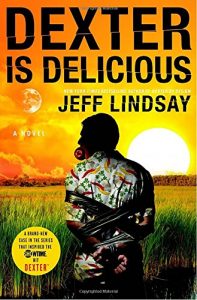 Apparently, the last Dexter book I read was over five years ago, when Dexter Is Delicious had only been out for a year. I could have caught up, belike! In the nonce, the series has concluded entirely, which is kind of weird for a popular mystery novel character. Usually those get milked for decades.
Apparently, the last Dexter book I read was over five years ago, when Dexter Is Delicious had only been out for a year. I could have caught up, belike! In the nonce, the series has concluded entirely, which is kind of weird for a popular mystery novel character. Usually those get milked for decades.
I have a lot of jumbled, unrelated things to talk about. Like: the show. I have seen all of the show, and I have not read all of the books. But I think that the show is better than any of the books at its very best, while being not nearly as good as the books are on average. So, if you liked the show for a while, an only seven eight[1] book series is probably a good investment.
And: Dexter’s narration. I can’t tell if I was so dazzled by the show that I missed it in earlier books, or if it subtly changed over time. But I’ve read lots of versions of unreliable narrator, and usually they’re lying to the reader to protect something, maybe a secret, maybe some part of themselves they don’t think belongs to you? But this is the only one I can think of that is just self-deluded, and certainly the only one where that fact is played primarily for comedic effect. It’s not that Dexter is dumb; he’s very successful, both professionally and in his personal life, and he has to be both smart and careful to achieve either. But he’s also not a god walking amongst men, and the only thing funnier than seeing the mistaken belief in action is seeing when he, very occasionally, has the belief shaken by outside events.
Lastly: the series’ end. I haven’t said much about the book itself. It’s about what you’d think from the title plus cover: Dexter vs. cannibal. And there are twists along the way, like the infant daughter that he wants to be a better man for, and other expansions of his extended family besides. One of those twists has longer term implications, though. The thing that’s weird is, as a standalone book, it felt like a combination of an unwanted and unnecessary plot development and a cheap gimmick; but as the fifth book of only seven nope, still eight total, it instead feels like an indication of the end’s beginning.
I of course have no idea if this was true when the book was written, nor if it will turn out to be true when I finish the series. This is why I hate meta-spoilers, though; it’s basically impossible to avoid them.
[1] circa 2022, I learned, to my regret, that the series is one book longer than I had apparently believed for quite a while.
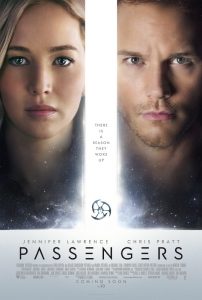 It is functionally impossible to really talk about this movie without massive spoilers, because what the movie is actually about requires knowledge of character actions and motivations. This is… problematic, since spoilers suck. So, I’ll fill in the next paragraph with some kind of thumbnail thing, and put in a cut (that doesn’t work everywhere), and after that, you should probably have watched it first to go any further. Or, if you don’t care, that’s your lookout.
It is functionally impossible to really talk about this movie without massive spoilers, because what the movie is actually about requires knowledge of character actions and motivations. This is… problematic, since spoilers suck. So, I’ll fill in the next paragraph with some kind of thumbnail thing, and put in a cut (that doesn’t work everywhere), and after that, you should probably have watched it first to go any further. Or, if you don’t care, that’s your lookout.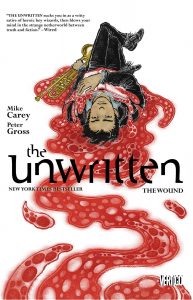 To actually review this, I need to go back and read
To actually review this, I need to go back and read  This is weird. First of all, yes, I saw
This is weird. First of all, yes, I saw 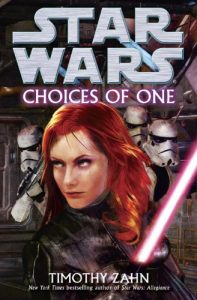 It’s the day after a big Star Wars release, so naturally I have a Star Wars review, about a story set in the early days surrounding the original movie, just like you’d expect me to have. Oh, wait, haha no, I haven’t actually gone to see any movie yet. Probably later this weekend? But my schedule, my wife’s schedule, and sellouts to places that have assigned seats conspired to keep me away last night. Even less likely than that, I wasn’t really thinking about this being release weekend when I picked up
It’s the day after a big Star Wars release, so naturally I have a Star Wars review, about a story set in the early days surrounding the original movie, just like you’d expect me to have. Oh, wait, haha no, I haven’t actually gone to see any movie yet. Probably later this weekend? But my schedule, my wife’s schedule, and sellouts to places that have assigned seats conspired to keep me away last night. Even less likely than that, I wasn’t really thinking about this being release weekend when I picked up 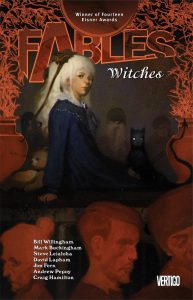 Moving: awesome for getting to live in a place you like better than the previous place you lived, but terrible for not falling way way behind on book series that you are reading. Case in point: The new Fables collection picks up right after they banded together to save all of creation that had been threatened by developments from the side series about Jack Horner, and that is not a record of what had actually been going on in the main continuity, which means they are resuming a plotline I last read about three years ago. Awesome.
Moving: awesome for getting to live in a place you like better than the previous place you lived, but terrible for not falling way way behind on book series that you are reading. Case in point: The new Fables collection picks up right after they banded together to save all of creation that had been threatened by developments from the side series about Jack Horner, and that is not a record of what had actually been going on in the main continuity, which means they are resuming a plotline I last read about three years ago. Awesome.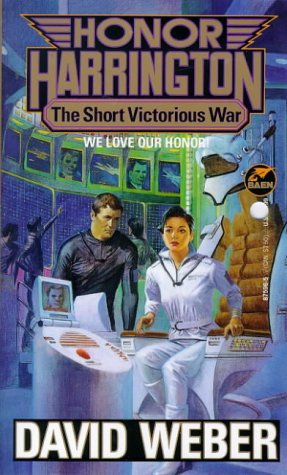 It’s been a while since I’ve
It’s been a while since I’ve 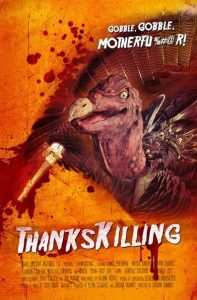 Off of a dare[1] on Wednesday night before Thanksgiving, I turned on
Off of a dare[1] on Wednesday night before Thanksgiving, I turned on 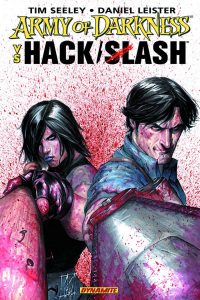 As of this writing, my new job and then the world’s pre-eminent boardgame convention have kept me too busy and/or access-blocked to do much in the way of reviewing. Well, no, that’s not right. As you can see, I’ve been reviewing, I just haven’t been posting them. The previous one, I think about a movie I saw a week or two ago, has been sitting in my inbox for days waiting for me to punch up the HTML and then post it. On the (let’s say) bright side, I haven’t had time to fall farther behind, so I’ve got that going for me at least.
As of this writing, my new job and then the world’s pre-eminent boardgame convention have kept me too busy and/or access-blocked to do much in the way of reviewing. Well, no, that’s not right. As you can see, I’ve been reviewing, I just haven’t been posting them. The previous one, I think about a movie I saw a week or two ago, has been sitting in my inbox for days waiting for me to punch up the HTML and then post it. On the (let’s say) bright side, I haven’t had time to fall farther behind, so I’ve got that going for me at least.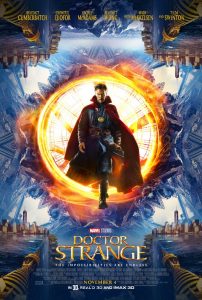 I know that Doctor Strange occasionally crosses over with other characters in the Marvel universe. I mean, maybe someday he’ll be at the heart of a big crossover event, but as of 15 years of Ultimate comics and 20 years of mainstream comics, he has only ever been at the fringes. And this is a thing that makes a lot of sense! Except for the artifact of history that Stan Lee decided to build a stable of shared characters in the early 1960s to compete with what DC had been doing, there’s no way anyone would say Strange fits into Marvel. Different genre than anything else they publish, and an entirely different style to boot. The only thing that comes close is Thor, and that’s only because they both share a love of stilted declamations.
I know that Doctor Strange occasionally crosses over with other characters in the Marvel universe. I mean, maybe someday he’ll be at the heart of a big crossover event, but as of 15 years of Ultimate comics and 20 years of mainstream comics, he has only ever been at the fringes. And this is a thing that makes a lot of sense! Except for the artifact of history that Stan Lee decided to build a stable of shared characters in the early 1960s to compete with what DC had been doing, there’s no way anyone would say Strange fits into Marvel. Different genre than anything else they publish, and an entirely different style to boot. The only thing that comes close is Thor, and that’s only because they both share a love of stilted declamations.